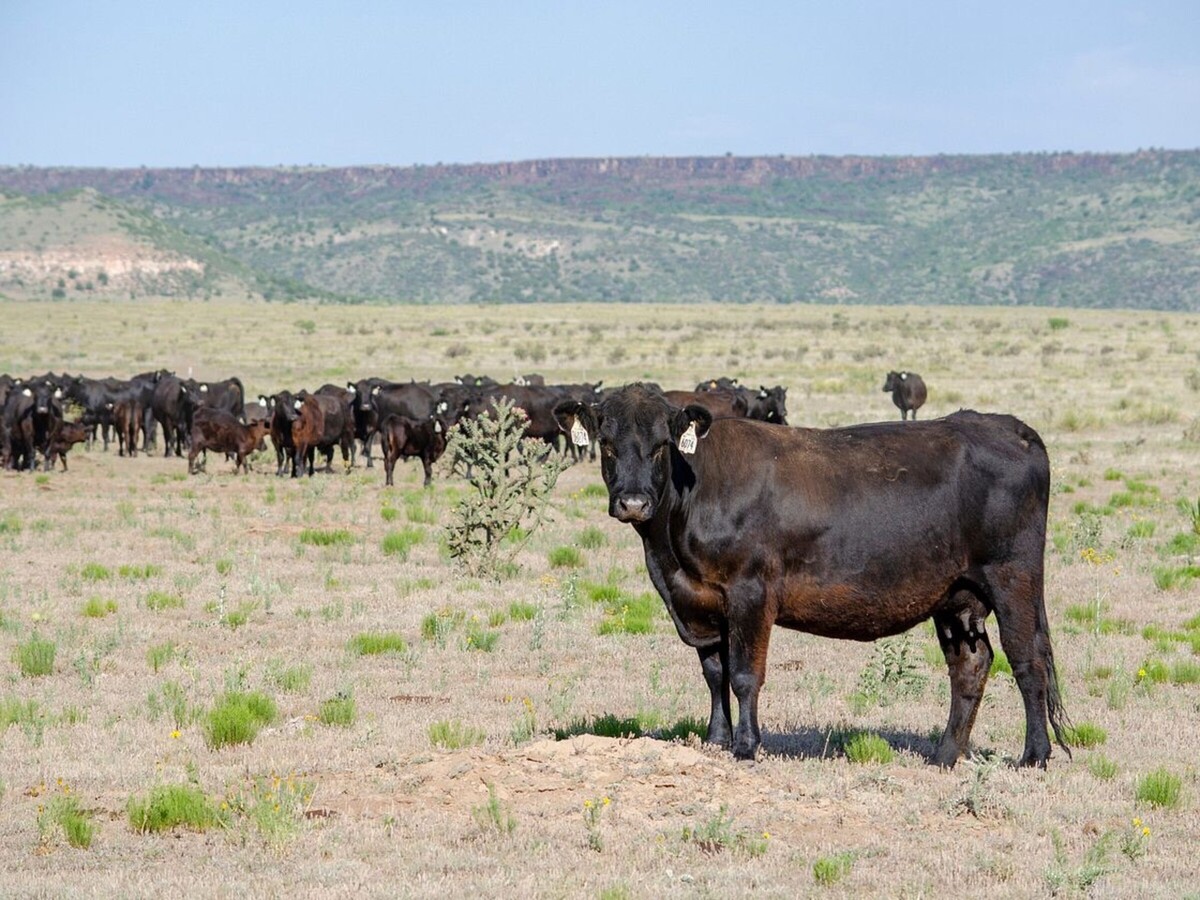Image


In the state of New Mexico there are under 20 people per square mile and around 20,900 ranches and farm operations covering over 60% of the state, there’s way more livestock in New Mexico than people., 89% of New Mexico’s 39,100,000 acres of farmland is pasture ground.
2The livestock and livestock product industry is one of the largest in New Mexico producing over $3.0 billion in annual revenue. There are almost 2 million head of cattle and calves in the state in with 340,000 of them being dairy cows.
In December it was announced that the U.S. will allow beef imports from Paraguay for the first time in 25 years as shrinking cattle herds raise domestic prices and limit supply.
Beef exports from Paraguay were barred in 1997 due to concerns over the country’s meat inspection system and the potential spread of foot-and-mouth disease. Earlier this year, the U.S. Department of Agriculture said audits revealed safety standard improvements and ruled beef could safely be imported from the country under certain conditions.
The ruling, which went into effect Dec. 14, has sparked broad criticism from U.S. ranchers who say safety audits are outdated and warn of potential consequences to the cattle industry. Highly contagious foot-and-mouth disease was eradicated from the U.S. in the 1920s and a resurgence would likely halt all livestock exports.
Livestock producers have called on the USDA to overturn the rule. U.S. senators introduced a bill that would pause exports until a working group conducts a risk safety assessment.
On Wednesday, April 17, 2024, U.S. Representative Gabe Vasquez (N.M.-02) announced he is leading H.J.Res.115, a Congressional Review Act resolution to overturn the Administration’s decision to allow beef imports from Paraguay, whose history of Foot-and-Mouth Diseases raises serious concerns about food safety.
Vasquez is one of two Democrats who joined nearly two dozen Republicans to push back against the Administration in order to protect New Mexico’s agricultural industry and public health.
“I’m opposed to the Administration’s decision to suddenly allow beef imports from Paraguay, which impacts New Mexico cattle growers and raises public health concerns,” said Vasquez. “I stand with New Mexico’s Agriculture industry, which is why I am leading this bipartisan effort to reverse this decision and instead prioritize American cattle growers and the well-being of American consumers.”
“We applaud Congressman Vasquez for co-sponsoring H.J. Res. 115, which will protect the health of our domestic livestock herd from unnecessary exposure to Foot and Mouth Disease,” said Larry Reagan, President of the New Mexico Farm and Livestock Bureau. “Animal health is extremely important to our state’s livestock producers, and we appreciate the timely action of Congressman Vasquez to protect New Mexico’s livestock and support the continued viability of the safest food supply in the world.”
Vasquez’s leadership on this effort emphasizes his commitment to supporting New Mexico’s farmers, ranchers and producers–regardless of party lines.
“The U.S. should not extend our market to unsafe actors at the risk of the health and livelihood of U.S. agricultural producers or consumers,” a group of U.S. representatives wrote in a letter to USDA Secretary Tom Vilsack in November. “An FMD outbreak in the U.S. would cause catastrophic damage to the U.S. economy and cut off access to vital export markets.”
Congressman Vasquez’s efforts partnered with the bipartisan group of political leadership is a a followup to that effort from November.
Reopening the beef trade with Paraguay also stands to further reduce demand for U.S. beef as ranchers contend with elevated production expenses and smaller cattle herds. Intense drought over the past few years has whittled down cattle numbers, raising consumer prices and decreasing appetite for U.S. beef at home and abroad.
The U.S. is importing record amounts of beef to offset rising consumer prices, cutting into the domestic market for local producers. The resumption of exports from Paraguay could lead to $24 million in yearly losses for producers, according to an analysis from USDA.